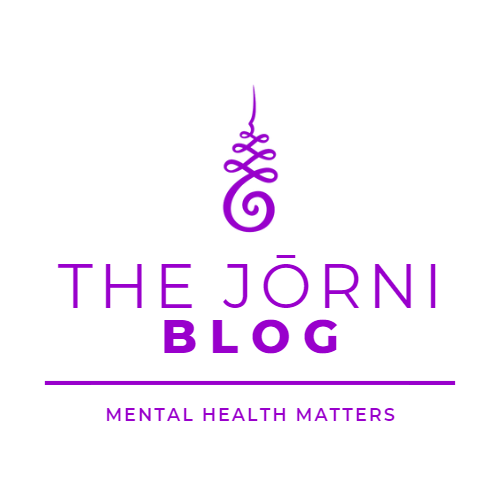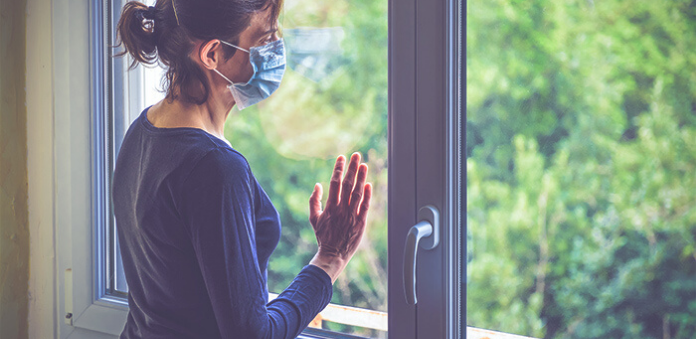
When science fiction meets reality in quarantine depression
Here’s a new one for you - quarantine depression.
At the beginning of this year, we were all just starting to understand the scope of the Covid-19 outbreak. We only started to feel the tingle of uncertainty of how this was going to affect our lives. We heard about what happened in China and how the government imposed a lockdown. I hoped it would get under control and blow over like the 2003 SARS outbreak in Canada.
The SARS outbreak was scary. I was studying in Vancouver at the time and the experience was unlike anything I had gone through before. The airport grounded and diverted flights. Many university students volunteered to help with all the people stranded in Vancouver. It was chaotic and serious, but the measures taken were nothing like what we are experiencing now.
I feel like one day I was following the news, thinking this was like the usual flu season, and the next I was under quarantine, needing a downloaded “hall-pass” to be allowed to get groceries. I felt pretty overwhelmed with the way things changed in such sudden and drastic steps. Now that we are weeks into the quarantine, people are realizing that toilet paper isn’t going to be their biggest concern.
As social distancing continues to be enforced around the globe, I wanted to look at how it can affect depression and our general mental well-being in the process. Nobody is isolated from this. Even the people who have family at home and are not quarantining alone can become anxious and experience quarantine depression.

Social distancing, quarantine depression - the long term reality
What to expect
In order to keep the community spread of Covid-19 low, social distancing is a top priority. It is a necessary measure. But I know we are all feeling the strain of this major change in our lives. People who may have pre-existing mental health conditions like depression or anxiety may be much more vulnerable to the mental health effects of social distancing and quarantine depression.
Things can become really challenging, especially when reliable coping mechanisms like going to a gym or sitting down for a cup of tea with a friend are no longer available to turn to. You might notice some changes in your mental health and your general outlook as social distancing continues to be enforced.
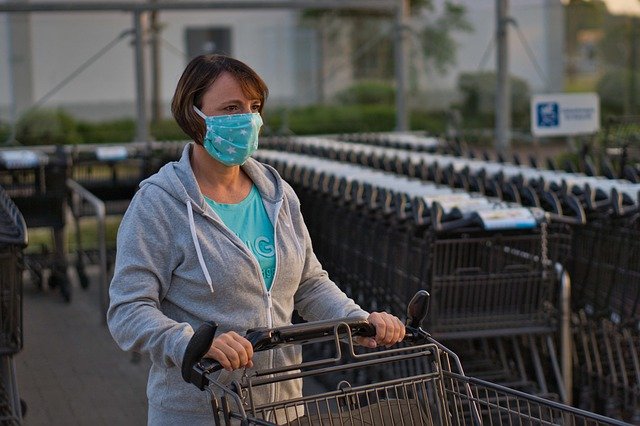
A new normal?
The reality is that this will last for quite some time to come. Without sounding the panic alarm, you can rationally expect that social distancing measures will remain in place for many more months. Travel will be restricted. Access to shopping might look different than it did before. In some countries, you are looking at having to wear a mask in public. So, unfortunately, it looks like the mental health side effects of coronavirus measures will also be around for some time to come.
It is this drastic change in daily life and our routine that seems to really get to us.
“Nothing in life is to be feared, it is only to be understood. Now is the time to understand more so that we may fear less.”
- Marie Curie
I know for myself, going shopping and being surrounded by people wearing masks is scary. I don’t know exactly why, but it makes me uncomfortable. And I am really just hoping that online shopping does not become restricted. This might not be a big deal to some, but I buy the large majority of household items online because we live quite far out of town. I expect that the new reality of shopping and of socializing in general will definitely be impacted by this crisis a ways into the future.

My rainbow of quarantine depression feelings
Fear and anxiety
Even for people who don’t struggle with depression in their daily lives, social distancing like we are experiencing, can be an extremely difficult adjustment. I have been noticing myself experiencing a lot more anxiety in the last weeks. Just like many other people, I’m worried about my health, my loved ones, my job, my finances… you name it! This situation is definitely bringing the feeling of quarantine depression front and center for me every day.
I’m finding myself lost in thought triggered by news or seeing our communities closed off with “caution” tape, Plexiglas, masks, and gloves. You might even find yourself having issues sleeping or staying focused on daily tasks. Feelings of anxiety and fear during a time like this are very normal considering the massive shift we have all gone through in the last weeks.
I have had a lot of trouble sleeping during all this.
I wake up anxious and cannot go back to sleep. During the day I feel quite tired, but at night I don’t quickly fall asleep. The constant worrying and thinking about this situation has not been beneficial for my sleep schedule.
And as I keep telling our Jōrni members, sleeping and staying healthy during this time is super important. I really have to remind myself to self-care. It is very easy to slip into the habit of focusing on the negative every day. Even my friends who are usually upbeat and positive have changed in the last weeks and are more cautious, worried, and scared.
Boredom can facilitate quarantine depression as well
Depending on how social distancing and quarantine have affected your life and job in particular, you may be one of the many people that find themselves at home right now. Maybe you can work over the Internet or maybe you are just stuck at home with nothing to do. The way social distancing dictates this time, it can be easy to start feeling a bit aimless and bored after weeks of staying home.

You’ve binge watched all your favorite shows and tackled all your household projects. After a while you could notice that you’re left with a lack of routine or positive purpose. This can be a really extreme change if you’re already struggling with depression. The general mood and anxiety in the community, online and in the news only contributes to making us feel more scared, sad and lonely. This can quickly turn into anxiety and quarantine depression.
I have to admit I am also very sick of cooking at home. I quite enjoy cooking, but having to cook 3 meals a day and doing all the clean up is getting to me. We used to pop into a restaurant once in a while to take some of the pressure off and taste different kinds of food. With that option off the table, it has been on my shoulders to cook.
Not only do I feel bored and unbalanced at home, I also feel overwhelmed with the addition of tasks I have to do daily. There does not seem to be a balance to the household tasks and I am beginning to realize how important that is. I would even just be happy with a quick trip to the beach right now. And I miss visiting castles very much.
Anger
This might sound surprising, but social distancing can cause us to feel angry as well. When we are struggling with quarantine depression and anxiety, the goal is to find healthy things that help us feel better. This includes doing small things, even just for a few minutes at a time.
As we go along in our journey to fight depression and anxiety, we start to learn things that give us a bit of a reprieve from the heaviness we may feel. We then start collecting these experiences and therapies in an attempt to knit them together into a comfortable blanket of feel-good moments. This is the process of coping. And it can be a very fragile and meticulous task, depending on how deep and intense your depression may be.
So it’s understandable that when something like Covid-19 comes along and forbids some of these coping mechanisms you have so painstakingly collected, you can feel that your whole journey is in jeopardy. You may feel quite angry or frustrated about that. Maybe you’re angry because you used to get a bit of joy from watching a sporting event. Or you finally convinced yourself to attend a group at the gym consistently. Maybe you visited a pet at the animal shelter, or enjoyed the company of a particular friend who is supporting your journey.

It’s understandable that you might feel angry and frustrated when you’re no longer allowed (or able) to experience those things that were just providing some positivity in your life. It might not even be that rational. You may just feel very irritable in general because so many changes have been forced on your routine.
When can I get out of this quarantine?
I also feel angry at how slow everything seems to be to recover. I wanted out of this quarantine weeks ago. And I really wanted things to just go back to the way they were before. I know that is not rational because I know these measures are necessary. But that does not change the feelings that come up. It is normal to go through this, as with any big change, because it is a shock to your system and way of life. And it is ok to acknowledge those feelings and let them out.
Change in relationships
With all the extra strain we may be feeling from social distancing, it is easy to see that some of our relationships could be affected by the strain. We are all working to stay positive and process all the additional emotions we are feeling. You might find that the people closest to you may be the ones who feel the toll.
Don’t be surprised if you find that you’re getting irritated with the loved ones that you’re in close quarters with. It’s a big adjustment to see each other so much in a day with many of us no longer leaving to attend school, work or even hobbies. Especially because each one of us is experiencing so much strain. Our relationships are bound to be weighed down by the stress and uncertainty we all feel.
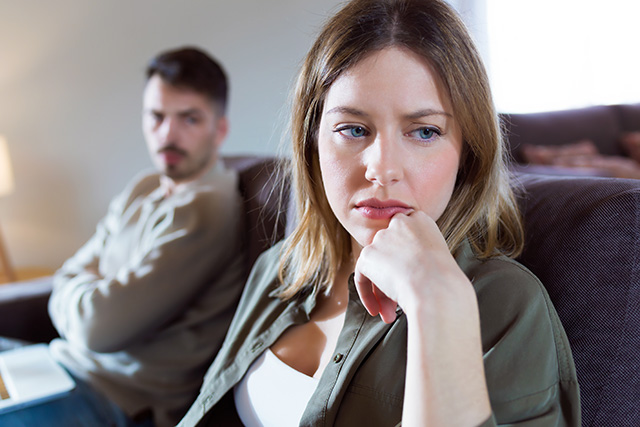
On the other hand, you might be noticing a change in your relationship with someone outside your quarantine. Social distancing affects much more than physical distance and can create emotional distance when it’s experienced for a longer period of time. We are all experiencing very different and unique realities right now. And we are not able to share our lives as intimately as before.
Maybe you’re finding a friend not relating as well to your situation. Or maybe you’re finding yourself overwhelmed by the emotional needs of someone close to you during this time. These relationship changes may be minor or severe, but hopefully they will only be temporary during this time of social distancing. Just remember that everyone else is also feeling this roller-coaster of emotions during this time.

How the heck do we manage this quarantine depression?
When you’re already struggling with depression or anxiety, social distancing can cause havoc on your life. So in order to try and stay positive, there are a few things you can do to help yourself. I’ve made my way through the list and back and here's what I have found.
Avoid excessive news and social media
This has been a big one for me. While I need to stay up to date on the regulations in France, it’s not helpful to be inundated with numbers and forecasts all day long. In the beginning, I was checking the news live blogs every half hour. I read news posts and browsed Facebook for the majority of the day.
I have to say that was so exhausting. Some people predicted all sorts of devastating outcomes and even the extinction of the human race. Nobody needs that in their day. Now, I only check the local regulations for anything I need to know when going out and other than that I focus on things I like.
“So Château” has launched live Zooms with castle owners all over Europe. You can watch the replays free online. And the Kitten Lady is putting on 4 live webinars on how to care for foster kittens. So, instead of investigating the number of infected people in my area, I recharge my batteries with things that make me feel good.

So much free stuff
Theaters are putting on free shows. Museums are offering free walkthroughs. Some tourist destinations have even uploaded free virtual tours. The list goes on and I am sure you have found some favorites too. I have found that since I have shifted my focus away from the crisis, I have slept much better and I feel better during the day.
Try to keep your news update to once a day with a reliable source not prone to encouraging more panic. And if you find that still triggers you, then turn it off. If Facebook triggers you, then take a break and be kind to yourself. There are a lot of things we feel we have to do in order to stay on top of this crisis. Just remember the most important thing is to take care of yourself.
Be creative with a new routine to ward off quarantine depression
While we’ve all had to change our lives to adapt to this situation, don’t give up having a routine while social distancing. Although things might look different, be creative to adapt the favorite parts of your day. You might be surprised at the options that are available to you, if you just rethink how they need to be done for now.
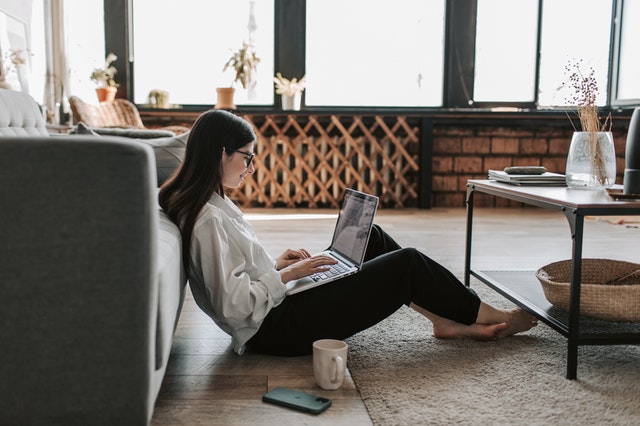
If you’ve been going to the gym, you can start a workout at home. A lot of the online programs don’t need any equipment and you can do them in your living room. You can even have your friends on video while you workout, so it feels more communal. If you are still allowed to go out, getting outside in the sunshine will also benefit your health and mood.
It is also a great time to learn new skills right now. Whereas you may have been too busy before, you might have some free time in your schedule now. Maybe you would enjoy learning a new language. Or if you have to cook, there are some fun cooking classes online right now. People are sharing so many skills and most of them are free to participate in.
You can also do this with your kids. If you are running out of things to do, have a look online. I was blown away by the fun things parents have recorded and put online. On top of doing school work, your kids might discover a new hobby or skill they want to learn. And Pokémon Go has adapted a lot of their game play for stay-at-home play now, if your kids (or adults) need a fun diversion.
Be patient and be prepared
I know it’s easier said than done! But just being aware of the added stress everyone is under can help us understand the reactions and moods we may be seeing in some of our relationships. This same understanding can help us be patient with ourselves as we feel the pull of loneliness, anger, sadness or anxiety.
Give yourself the space to feel these emotions but also be prepared with the “quarantine-version” of whatever feel-good experiences and therapies you know you can turn to, however small they may be. Finding more small things to keep you positive is vital. So, keep exploring what makes you feel better, one day at a time.

And most importantly, do something every day to take care of yourself. I know that you might be bored with nothing to do, or overwhelmed with too much to do. Whatever your personal situation is, you still need to make sure you stay healthy and happy. I would encourage you to follow the same pointers as you would without the health crisis.
Try to eat healthy food. A lot of us are forced to cook right now, so it is a good time to get some healthy foods in. If you are able to get supplements, you might want to consider it. A lot of us cannot go outside for long periods at the moment and I think I am really lacking Vitamin D (among other things). It’s also important to get some exercise and enough sleep.
Let it all out
It’s ok to “ugly cry”, as one of my friends put it. This is an extraordinary and unknown situation and it is ok to not be ok. Many people are being pushed to their absolute limits right now. A lot of my friends have their children at home, while still trying to work more than full-time hours to save their businesses.
As they fight for their existence, there are days it all becomes too much. Their children spend way too much screen time because there is simply nobody to care for them during the day. Home schooling is left out for the same reason. Housework does not get done. Instead of healthy food quick things have to be served whenever there is a minute.
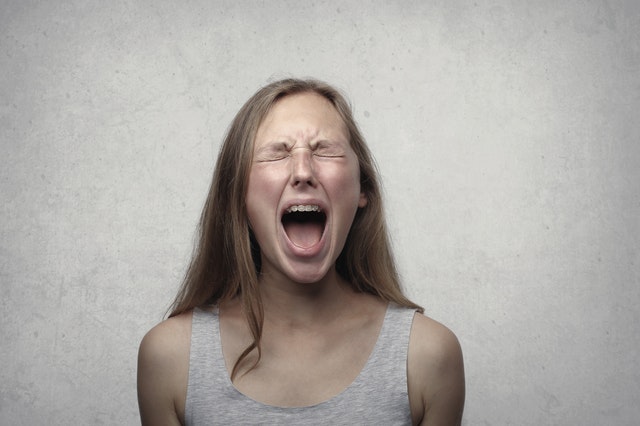
And parents feel incredibly guilty about this situation. When they come home exhausted sometime in the evening, it is simply too much. They worry about what this is doing to their children. But at the same time they know if they don’t continue, they will lose everything. This is not the time to judge anyone for what they have to do.
It is ok to break down and cry. Even if you are working from home and your days are not quite as hectic, or you are stuck at home on unemployment insurance, it is ok to acknowledge that this situation is getting to you. There is no judgement here. Your feelings are valid, no matter what your situation is. Let them out. Cry. Scream. Do whatever you need to express yourself. Bottling it all up is toxic, so take some time to let it all out.

The Takeaway
Without doubt, there is a lot of negativity going around with the coronavirus. Whatever problems we were experiencing before seem to have been magnified and multiplied by this situation. And even though our grandparents may still remember a time like this during the war, the younger generations may have never faced anything like this.
The sudden changes, health concerns, and the uncertain future are causing anxiety and depression to skyrocket. As we agonize about health, lives lost, and livelihoods, the whole situation may quickly become too much. The reality of quarantine depression hits very hard and causes a ripple effect of more isolation, anxiety, and fear.
If there is one thing I know it is that this will pass. Whatever the future will look like is uncertain right now. But there will be a world “after” coronavirus and a way of life “after” coronavirus. For some this will mean having to live without loved ones who have passed away. For others it will mean completely rebuilding their existence. And for some lucky ones, life afterwards will not look much different than before.
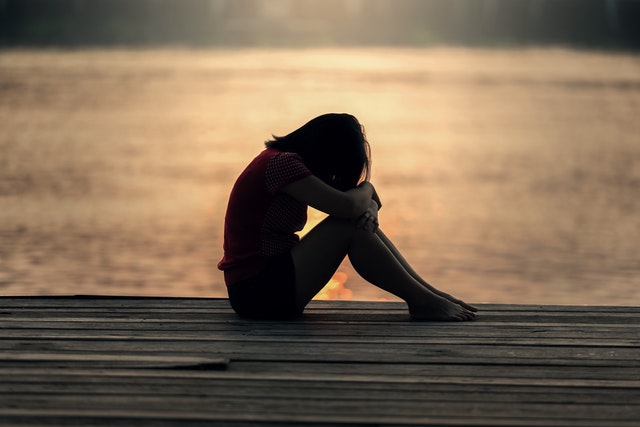
It's ok to not be ok
Everyone’s situation is different, but the one thing we all have in common is that we need to take care of ourselves. It is ok to stare into the unknown and feel anxious. You won’t have all the answers right now. But you can focus on the many positive things that people all over the world are doing to build community.
Now, more than ever before, we have access to an incredible amount of entertainment and knowledge online.
People are coming together online to make this situation more bearable for everyone. So, acknowledge your bad days and negative feelings, grieve for loved ones, and let it all out. And also make space to self-care and focus on the things that make you feel good.
While this crisis is certainly showing us where our mental and physical limits are, there is room not to give up. There is room to work on breaking through quarantine depression and taking care of your mental health. I really encourage you to go through some of the suggestions and simply start by focusing on a few small things that make you feel good each day.
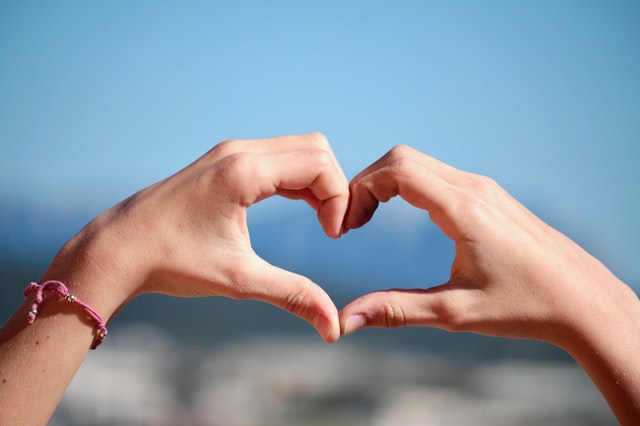
Maybe some positive changes?
Getting a handle on quarantine depression is not instant, but a gradual journey through good nutrition, sleep, and a string of positive moments each day. Know what to expect from this situation and prepare yourself by doing what you can to stay mentally and physically healthy. We will get through this and now more than ever before we are able to share our experiences and support each other through online communities.
Let this be a positive change that comes from this crisis. The coronavirus has already shed light on mental health during crisis times and the support structures that will be needed after the virus is under control. And hopefully that will be a permanent step toward better mental health support programs and accessibility for everyone.
I am sending you love and courage throughout this time!
Sources
